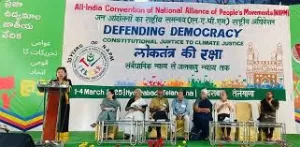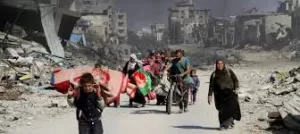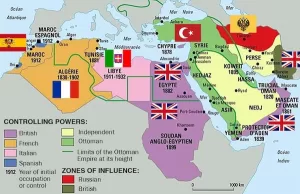❈ ❈ ❈
Gaza Slaughter: Israel’s War Crimes and US Hypocrisy
Patrick Martin
Over the past three days, relentless Israeli airstrikes killed at least 45 Palestinians, including 16 children, and caused extensive devastation.
At least 400 were wounded, many severely, and the handful of barely functioning hospitals and clinics were overwhelmed. Some 2.3 million Palestinians live in Gaza, confined by Israeli and Egyptian military cordons and fences. Hundreds of powerful bombs and missiles have rained down on a territory comprising only 141 square miles—exactly equal in area to the city of Detroit.
The most heavily bombed neighborhoods, where Israeli officials claimed leaders of the Islamic Jihad were the targets, were scenes of apocalyptic destruction, with apartment buildings transformed into craters and body parts strewn about. An Al-Jazeera montage of the faces of 12 martyred children, supplied by the Palestinian Health Ministry—shown here—was circulated throughout the Arab world, producing widespread outrage.
If it were Ukrainian children who suffered the same fate, there is no doubt that the American corporate media, the faithful servant of the CIA and State Department, would be providing saturation coverage. There would be endless hours devoted to mourning the loss of innocent lives and branding those responsible for their deaths as murderers and war criminals. No such terms will be used for Israeli Prime Minister Yair Lapid, Defense Minister Benny Gantz and other top Israeli military and intelligence officials.
The New York Times, which has spearheaded the media’s campaign over supposed Russian atrocities in the Ukraine war, began its report on the temporary halt in the Gaza bombardment this way: “A cease-fire ending three days of fierce cross-border fighting between Israel and a Palestinian militant group in Gaza appeared to be holding on Monday, and life on both sides of the lines began to return to normal.”
The supposed “fierce cross-border fighting” was a completely one-sided affair, with the Israeli military, the most powerful in the Middle East, armed to the teeth by US imperialism, dropping bombs and missiles on a defenseless population. Meanwhile, militants of the Palestinian Islamic Jihad (PIJ) fired off hundreds of rudimentary home-made rockets, nearly all of them landing harmlessly or shot down by Israeli’s antimissile system.
As to the “return to normal,” for the people of Gaza, this means unbearable poverty, a 50 percent unemployment rate and a smashed infrastructure, in what is routinely described by observers as the largest open-air prison camp on the planet. Electricity is available only 11 hours a day even when the Gaza power plant is running, but it was shut down, not because of the bombing, but because Israel and Egypt halted the delivery of fuel supplies required to keep it running.
The Biden administration issued a brief statement welcoming the ceasefire, expressing appreciation for the role of Egypt, Qatar, Jordan and other reactionary Arab dictatorships and monarchies for their role in the diplomacy that brought a temporary end to the violence, while condemning Islamic Jihad for “indiscriminate rocket attacks.” Biden reaffirmed his “long-standing and unwavering” support for Israel, adding, “I commend Prime Minister Yair Lapid and his government’s steady leadership throughout the crisis.”
There is no doubt that the onslaught against Gaza was discussed and approved during Biden’s visit to Israel July 13-15, just three weeks before the well-prepared attack began. The Pentagon will now rush to resupply the munitions expended by the Israel Defense Force during the bombing campaign.
The rocket exchanges with PIJ were deliberately provoked by Israel’s arrest and detention of the senior leader of the group on the West Bank, Bassam al-Saadi, on August 1 in the city of Jenin. This was part of a systematic campaign of Israeli military violence in Jenin which has killed at least 30 Palestinians and wounded hundreds since the beginning of this year.
The timing of the attack seemed calculated to benefit Prime Minister Lapid, who heads a caretaker coalition regime headed into a November 1 general election. A Times of Israel headline declared: “With elections looming, Lapid’s Gaza gamble seems to have paid off” and cited the former television broadcaster’s need to burnish his military credentials before a contest where the main opposition comes from the right-wing militarist Benjamin Netanyahu, whose Likud Party coalition was ousted just last year.
Israeli press reports suggest that the main shift in policy since the fall of Netanyahu has been a decision to concentrate on the destruction of Islamic Jihad, the smaller of the two Islamist groups in Gaza, noting that Lapid had not mentioned Hamas, the ruling party in Gaza, in his public statements on the Israeli military attack. On Saturday night, General Oded Basyuk, the head of the Israeli Defense Forces Operations Unit, told reporters that the IDF had successfully killed “the entire senior security echelon of Islamic Jihad’s military wing in Gaza.”
The response of the Arab rulers to the three-day bombardment of Gaza provided example of their cynical treachery and betrayal of the interests of the Palestinian people and the Arab masses as a whole. Most of the Gulf sheikdoms followed the lead of Saudi Arabia, whose media denounced Islamic Jihad as a tool of Iran and suggested that PIJ had provoked the conflict in conjunction with the resumption of nuclear energy talks between Iran and the so-called P5+1 group (the five full members of the UN Security Council plus Germany). These talks resumed in Vienna on August 4.
This allegation turns the world upside down. It is far more likely that the Israeli regime, not Islamic Jihad, timed the conflict to disrupt the nuclear talks because it stridently opposes any deal that would ease sanctions on Iran.
The bloodstained Egyptian military regime brokered the ceasefire, while maintaining its iron grip on Gaza’s western border, which it has largely closed since Hamas came to power in the territory in 2007.
The Gaza bloodbath also demonstrates the impotent and bankruptcy of the Palestinian bourgeois nationalists of every stripe, whether the Islamist variety, like Hamas, or the secular Fatah group which controls the Palestinian Authority and acts as Israel’s appointed prison guard on the West Bank. It is noteworthy that while the US and Israel still nominally treat Hamas as a “terrorist group,” Egypt, Qatar and the UN mediators “dealt with the Hamas leaders as if they were the legitimate and sole rulers of the Gaza Strip,” as the Jerusalem Post observed.
The situation in Gaza remains fraught. The Israeli military has called up 25,000 reserves and has no plans to demobilize them, while an Islamic Jihad leader said that if Israel did not release two imprisoned PIJ leaders, including Bassam al-Saadi, by the weekend—as was apparently promised to Egypt—the conflict would be resumed.
There is no way out of the intractable and bloody conflicts in the Middle East through any of the reactionary nationalist regimes or through maneuvers with the United Nations and the European imperialist powers, let alone through “peace” talks brokered by Washington, the center of world reaction and militarism. The only road forward is through an international movement of the working class and oppressed masses throughout the region, which unite Arab, Israeli, Turkish and Kurdish workers on the basis of a socialist and anti-imperialist program.
(Courtesy: WSWS.org. The WSWS is the online publication of the International Committee of the Fourth International.)
❈ ❈ ❈
Without Palestine, There is No Arab Unity: Why Normalization with Israel Will Fail
Ramzy Baroud
It seemed all but a done deal: Israel is finally managing to bend the Arabs to its will, and Palestine is becoming a marginal issue that no longer defines Israel’s relations with Arab countries. Indeed, normalization with Israel is afoot, and the Arabs, so it seems, have been finally tamed.
Not so fast. Many events continue to demonstrate the opposite. Take, for example, the Arab League two-day meeting in Cairo on July 31 – August 1. The meeting was largely dominated by discussions on Palestine and concluded with statements that called on Arab countries to reactivate the Arab boycott of Israel, until the latter abides by international law.
The strongest language came from the League’s Assistant Secretary-General who called for solidarity with the Palestinian people by boycotting companies that support the Israeli occupation.
The two-day Conference of the Liaison Officers of the Arab Regional Offices on the Boycott of Israel praised the Boycott, Divestment and Sanctions (BDS) movement, which has been under intense western pressures for its unrelenting advocacy of international action against Israel.
One of the recommendations by Arab officials was to support Arab boycott initiatives in accordance with the Tunis Arab Summit in March 2019, which resolved that “boycott of the Israeli occupation and its colonial regime is one of the effective and legitimate means to resist.”
Though one may rightly cast doubts on the significance of such statements in terms of dissuading Israel from its ongoing colonization schemes in Palestine, at least, it demonstrates that in terms of political discourse, the collective Arab position remains unchanged. This was also expressed clearly to US President Joe Biden during his latest visit to the Middle East. Biden may have expected to leave the region with major Arab concession to Israel – which would be considered a significant political victory for the pro-Israel members of his Democratic Party prior to the defining November midterm elections – but he received none.
What American officials do not understand is that Palestine is a deeply rooted emotional, cultural and spiritual issue for Arabs – and Muslims. Neither Biden, nor Donald Trump and Jared Kushner before him, could easily – or possibly – alter that.
Indeed, anyone who is familiar with the history of the centrality of Palestine in the Arab discourse understands that Palestine is not a mere political question that is governed by opportunism, and immediate political or geopolitical interests. Modern Arab history is a testament to the fact that no matter how great US-Western-Israeli pressures and however weak or divided the Arabs are, Palestine will continue to reign supreme as the cause of all Arabs. Political platitudes aside, the Palestinian struggle for freedom remains a recurring theme in Arab poetry, art, sports, religion, and culture in all its manifestations.
This is not an opinion, but a demonstrable fact.
The latest Arab Center Washington DC (ACW) public opinion poll examined the views of 28,288 Arabs in 13 different countries. Majority of the 350 million Arabs continue to hold the same view as previous generations of Arabs did: Palestine is an Arab cause and Israel is the main threat.
The Arab Opinion Index (AOI) of late 2020 is not the first of its kind. In fact, it is the seventh such study to be conducted since 2011. The trend remains stable. All the US-Israeli plots – and bribes – to sideline Palestine and the Palestinians have failed and, despite purported diplomatic ‘successes’, they will continue to fail.
According to the poll: Vast majority of Arabs – 81 percent – oppose US policy towards Palestine; 89 percent and 81 percent believe that Israel and the US respectively are “the largest threat” to their individual countries’ national security. Particularly important, majority of Arab respondents insist that the “Palestinian cause concerns all Arabs and not simply the Palestinians.” This includes 89 percent of Saudis and 88 percent of Qataris.
Arabs may disagree on many issues, and they do. They might stand at opposite sides of regional and international conflicts, and they do. They might even go to war against one another and, sadly, they often do. But Palestine remains the exception. Historically, it has been the Arabs’ most compelling case for unity. When governments forget that, and they often do, the Arab streets constantly remind them of why Palestine is not for sale and is not a subject for self-serving compromises.
For Arabs, Palestine is also a personal and intimate subject. Numerous Arab households have framed photos of Arab martyrs who were killed by Israel during previous wars or were killed fighting for Palestine. This means that no amount of normalization or even outright recognition of Israel by an Arab country can wash away Israel’s sordid past or menacing image in the eyes of ordinary Arabs.
A most telling example of this is how Egyptians and Jordanians answered the AOI question “Would you support or oppose diplomatic recognition of Israel by your country?” The interesting thing about this question is that both Cairo and Amman already recognized Israel and have diplomatic ties with Tel Aviv since 1979 and 1994, respectively. Still, to this day, 93 percent of Jordanians and 85 percent of Egyptians still oppose that recognition as if it never took place.
The argument that Arab public opinion carries no weight in non-democratic societies neglects the fact that every form of government is predicated on some form of legitimacy, if not through a direct vote, it is through other means. Considering the degree of involvement the cause of Palestine carries in every aspect of Arab societies – on the street, in the mosque and church, in universities, sports, civil society organizations and much more – disowning Palestine would be a major delegitimizing factor and a risky political move.
American politicians, who are constantly angling for quick political victories on behalf of Israel in the Middle East do not understand, or simply do not care that marginalizing Palestine and incorporating Israel into the Arab body politic is not simply unethical, but also a major destabilizing factor in an already unstable region.
Historically, such attempts have failed, and often miserably so, as apartheid Israel remains as hated by those who normalized as much as it is hated by those who have not. Nothing will ever change that, as long as Palestine remains an occupied country.
(Dr. Ramzy Baroud is a journalist, author and the Editor of The Palestine Chronicle. He is a Non-resident Senior Research Fellow at the Center for Islam and Global Affairs (CIGA). Courtesy: Countercurrents.org.)




